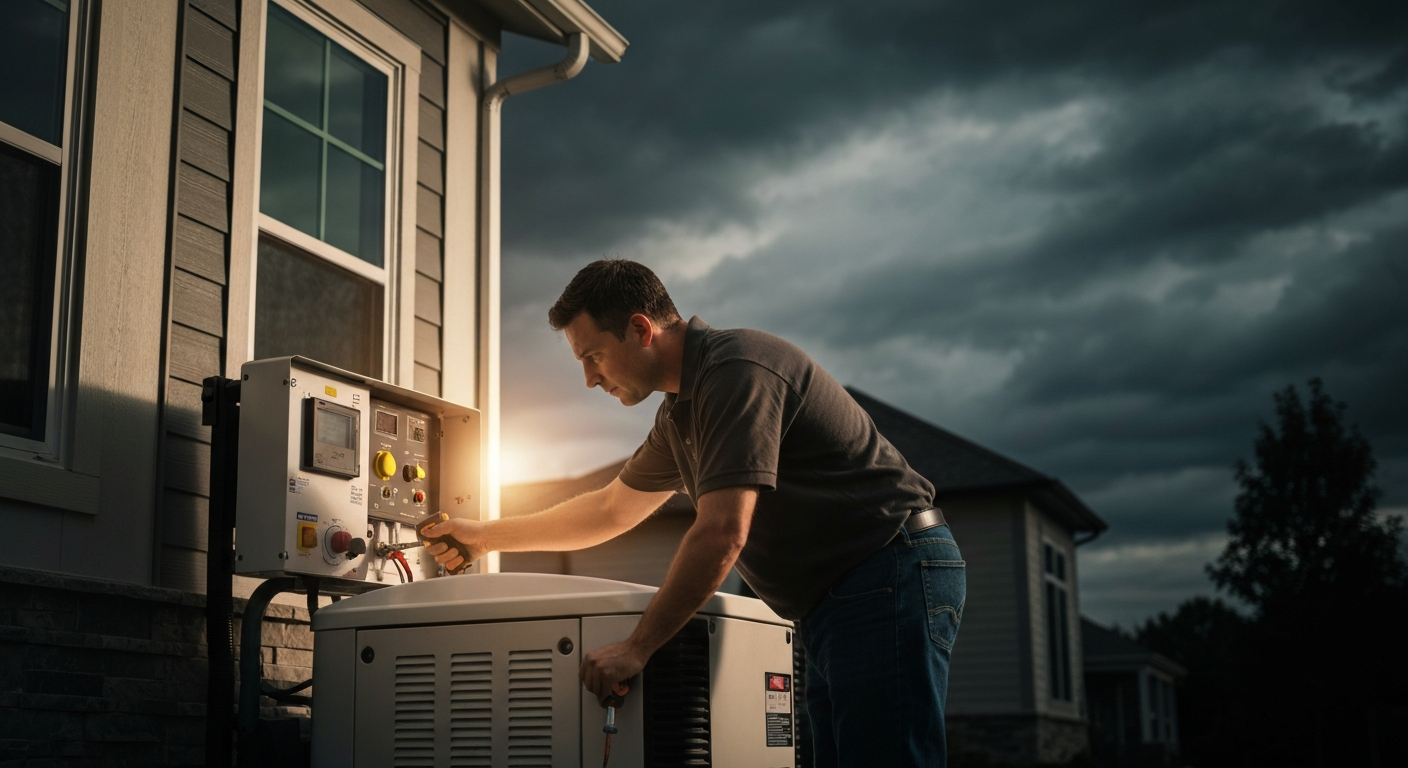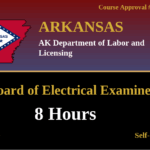
Standby Generator Market Growth in Arkansas: What Pros Should Know
Standby Generator Market Growth in Arkansas: What Pros Should Know
Why Demand for Backup Power Solutions is Skyrocketing
The demand for reliable backup power solutions is surging across the U.S. and globally. Multiple market analyses project significant growth, with a Fortune Business Insights report noting the global standby generator market was valued at $12.08 billion in 2024 and is projected to reach $19.21 billion by 2032. While specific valuations vary, the trend is clear and strongly reflected in Arkansas, where homeowners and businesses are tired of being left in the dark. This shift is driven by several key factors.
The Unmistakable Impact of Storm-Related Power Outages
Frequent and severe weather is the most significant driver. An analysis of 2022 data from the U.S. Energy Information Administration (EIA) revealed that Arkansas customers experienced some of the nation’s longest power outage durations when major events were included. Even excluding major events, the EIA’s System Average Interruption Duration Index (SAIDI) shows the average customer experienced 3.69 hours without power that year. These aren’t minor inconveniences; they are disruptive and costly events that motivate property owners to invest in permanent solutions like a whole-home generator installation.
An Increased Reliance on Uninterrupted Power
The rise of remote work, sophisticated home electronics, and critical home medical devices has made a consistent power supply essential. A power outage is no longer just a matter of resetting the clocks; it can mean lost income, disruption of essential medical care, and significant personal inconvenience. This growing dependency is a major catalyst for both residential and commercial clients seeking reliable backup power.
The Opportunity for Arkansas Electrical Contractors
This increased demand represents a major growth sector for any Arkansas electrical contractor. The market for electricians in Arkansas is already substantial, and specializing in generators is a powerful way to claim a larger share. This isn’t just about a few extra jobs; it’s about building a resilient and profitable business model that addresses a critical, ongoing customer need. For professionals looking to grow, exploring the latest electrical work trends for 2025 can provide a broader context for where the industry is headed.
Whether you’re a seasoned professional with a master electrician license or a journeyman electrician looking to advance, the generator market offers new revenue streams. The work spans from assessing residential needs and performing a whole-home generator installation to tackling complex commercial generator sizing and setup for businesses that can’t afford a moment of downtime.
Key Technical Skills for Generator Professionals
Successfully tapping into this market requires specific technical expertise. A licensed residential electrician must be proficient in more than just basic wiring; they need a deep understanding of generator systems and associated codes.
Automatic Transfer Switch (ATS) and Load Management
Proper installation of an automatic transfer switch (ATS) is the heart of a seamless backup power system. An ATS automatically detects a power outage, isolates the electrical system from the grid, and switches to generator power, all without manual intervention. Expertise in load management is also critical. Electricians must be able to calculate a building’s essential loads and install systems that can intelligently manage power distribution to prevent overloading the generator, ensuring critical circuits always have power.
Fuel Sources: Propane vs. Natural Gas
Clients will rely on your expertise to choose the right fuel source. While a propane generator offers a stable, storable fuel source ideal for rural areas, a natural gas generator hookup provides a continuous, convenient fuel supply for customers with existing service, eliminating the need for refueling. Understanding the installation requirements and benefits of each is crucial for advising clients effectively.
Navigating Permits and the NEC
Generator work is heavily regulated. Obtaining the correct generator installation permits from the local Authority Having Jurisdiction (AHJ) is a mandatory first step. Furthermore, a thorough understanding of the National Electrical Code (NEC) is non-negotiable. Optional standby systems, typical for residential installations, are primarily governed by NEC Article 702. For legally required systems, such as providing power for communications systems, smoke removal systems required for firefighting, or certain industrial processes where a shutdown would create hazards, the more stringent requirements of NEC Article 701 come into play. These rules dictate everything from wiring to transfer switch specifications, and ensuring every installation is code-compliant is paramount for safety and liability.
Building Your Business in the Generator Market
Expanding into generator services is a strategic move that can significantly increase your company’s value and profitability. If you’re considering this path, you might find valuable insights in our guide to starting an electrical business in Arkansas.
Partnering with Leading Brands
Aligning with major manufacturers can provide credibility and support. Many electricians find success by becoming a Generac dealer Arkansas or pursuing Kohler service training. These partnerships often provide access to training, technical support, and sales leads, giving you a competitive edge. This specialization is one of several smart ways electricians can boost their earning potential.
The Value of Annual Generator Maintenance Contracts
The job doesn’t end after the installation. Offering annual generator maintenance contracts creates a recurring revenue stream and fosters long-term customer relationships. Regular service—including oil changes, battery checks, and load testing—ensures the customer’s investment works when it’s needed most and positions you as their trusted, long-term power expert. While you’re expanding your services, it’s also worth staying informed on adjacent technologies, like the growing field of home solar generators for electricians.
Your Next Step in a Power-Hungry Market
The demand for standby generators in Arkansas isn’t a fleeting trend; it’s a fundamental shift in how residents and businesses approach energy reliability. For the skilled electrician, this market offers a clear path toward business growth and increased profitability. By mastering the technical skills, understanding the code, and building a service-oriented business model, you can become an indispensable resource in your community.
To stay ahead in this evolving industry, continuous learning is key. ExpertCE offers a wide range of courses to keep your skills sharp and your license current. Browse our courses today to ensure you’re prepared for the opportunities of tomorrow.
Related Resources
- Starting an Electrical Business in Arkansas
- Home Solar Generators for Electricians
- Electrical Work Trends for 2025
- 5 Smart Ways Electricians Can Boost Their Earning Potential
Frequently Asked Questions
- What’s the difference between an automatic transfer switch (ATS) and an interlock kit?An automatic transfer switch (ATS) automatically detects a power outage, disconnects the home from the utility grid, and switches to generator power without any manual intervention. A generator interlock kit is a less expensive, mechanical device installed on your main electrical panel that requires you to manually switch the power source, ensuring the main breaker and the generator breaker cannot be on at the same time.
- Do I need a permit for a generator installation in Arkansas?Yes, installing a standby generator almost always requires an electrical permit. The specific requirements for permits, plans, and inspections vary by local jurisdiction (city or county). You must confirm all requirements with the local AHJ before beginning any work.
- Who can install a standby generator in Arkansas?Due to safety regulations and code complexities, generator installation requires a licensed professional, such as a master or journeyman electrician. Local ordinances, like those in Little Rock and Bella Vista, explicitly state that permits for this type of work are issued to licensed individuals.
Arkansas Continuing Education Courses
Explore our board-approved continuing education courses for Arkansas professionals:
View CE RequirementsArkansas 2023 NEC Changes (8 Hours)
Disclaimer: The information provided in this educational content has been prepared with care to reflect current regulatory requirements for continuing education. However, licensing rules and regulations can vary by state and are subject to change. While we strive for accuracy, ExpertCE cannot guarantee that all details are complete or up to date at the time of reading. For the most current and authoritative information, always refer directly to your state’s official licensing board or regulatory agency.
NEC®, NFPA 70E®, NFPA 70®, and National Electrical Code® are registered trademarks of the National Fire Protection Association® (NFPA®)




